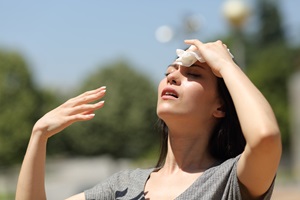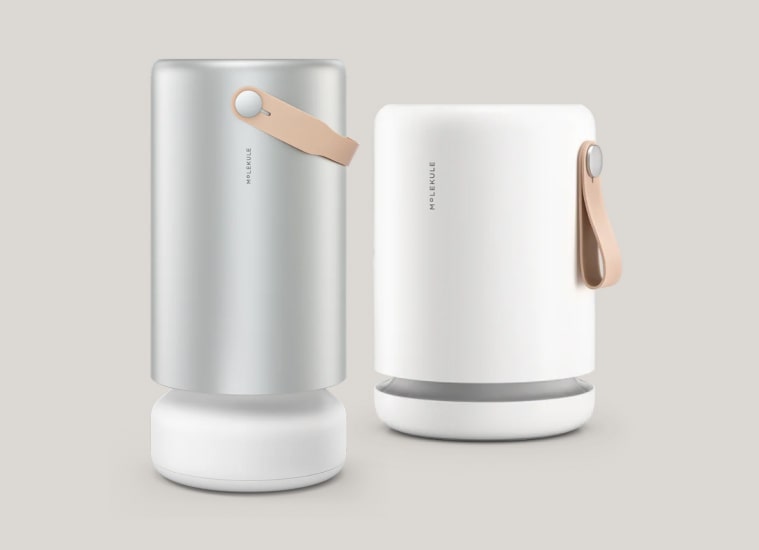How Summer Heat Triggers Allergies and Asthma: Effective Tips for Relief

As the temperature rises and the days grow longer, many people start to look forward to the outdoor activities that come with summer. However, for those who suffer from allergies or asthma, the summer heat can bring a whole new set of challenges. The warmer weather often leads to increased pollen levels, higher humidity, and other environmental factors that can trigger allergy and asthma symptoms. In this blog post, we’ll discuss how summer heat exacerbates allergies and asthma, and share tips on how to manage your symptoms and enjoy the season with greater comfort.
How Does Summer Heat Affect Allergies and Asthma?
The summer months can significantly impact those with allergies and asthma for several reasons. High temperatures and humidity levels increase the presence of airborne allergens like pollen, mold, and dust mites, which can trigger allergic reactions and asthma flare-ups.
- Increased Pollen Levels:
Summer is a peak season for tree, grass, and weed pollen, which are major allergens. Pollen counts are typically highest early in the morning and late in the afternoon, and hot, dry weather can make pollen more airborne and easier to inhale. This can trigger sneezing, itchy eyes, congestion, and wheezing, especially in individuals with allergic rhinitis or asthma. - Higher Humidity:
Humidity levels tend to rise in the summer, which creates a perfect breeding ground for mold, dust mites, and other allergens. Mold spores can thrive in damp environments, and the increased humidity can exacerbate asthma symptoms, making it harder to breathe and leading to coughing or wheezing. - Poor Air Quality:
During summer, air pollution often worsens, especially in urban areas. Ground-level ozone, smog, and particulate matter can increase, triggering asthma attacks and worsening allergic symptoms. Hot temperatures combine with pollution to create a dangerous mix that can irritate the respiratory system. - Exposure to Environmental Irritants:
Summer activities like gardening, mowing the lawn, or spending time outdoors can expose individuals to additional irritants, including pollen, dust, and pet dander. For those with asthma, the combination of allergens and physical exertion can lead to difficulty breathing, especially during outdoor activities.
Common Symptoms Triggered by Summer Heat:
- Sneezing and Nasal Congestion:
Allergies to pollen and mold can cause frequent sneezing and a runny or stuffy nose. - Itchy or Watery Eyes:
Pollen exposure can irritate the eyes, making them red, itchy, and watery. - Coughing and Wheezing:
Asthma symptoms such as coughing and wheezing can worsen in hot weather, especially when exposed to allergens or air pollution. - Shortness of Breath:
The combination of heat and allergens can make it harder to breathe, leading to shortness of breath, especially in individuals with asthma.
Effective Tips for Managing Allergies and Asthma in the Heat
- Monitor Pollen Counts:
During allergy season, check the pollen count daily to stay informed about potential allergens in the air. Many weather apps or websites offer pollen forecasts, helping you plan your outdoor activities around low-pollen times, typically in the early morning or after rainfall. - Limit Outdoor Activities During Peak Allergen Times:
If possible, limit outdoor activities during the peak hours for pollen (early mornings and late afternoons). On high pollen days, stay indoors with windows and doors closed. If you must go outside, wear sunglasses and a wide-brimmed hat to help protect your eyes and face from pollen. - Use Air Conditioning and Air Purifiers:
Keep your home cool and allergen-free by using air conditioning with a clean filter. If you don’t have air conditioning, using an air purifier with a HEPA filter can help remove airborne pollen and allergens. Regularly replace filters in your HVAC system to keep your indoor air clean and fresh. - Stay Hydrated:
Heat and dry air can dehydrate your body, which can worsen asthma symptoms. Drink plenty of water throughout the day to keep your airways moist and help reduce irritation. Staying hydrated is especially important during physical activities, as dehydration can make breathing more difficult. - Avoid Allergens Inside Your Home:
In addition to monitoring outdoor allergens, take steps to reduce allergens inside your home. Wash your bedding regularly, vacuum frequently with a HEPA-filter vacuum, and keep pets out of the bedroom. This will help reduce exposure to dust mites, pet dander, and other indoor allergens. - Take Medications as Directed:
If you have asthma or allergies, ensure you’re following your prescribed treatment plan. This may include using inhalers, nasal sprays, or antihistamines to manage your symptoms. If you experience more severe symptoms during the summer months, consult your healthcare provider for adjustments to your medications or to discuss additional treatments like allergy shots (immunotherapy). - Wear a Face Mask:
On days when the pollen count is particularly high, consider wearing a mask to help filter out allergens from the air. A well-fitting N95 mask can block out pollen and dust, making it easier to breathe and reducing your exposure to allergens. - Avoid Smoking and Air Pollutants:
Avoid exposure to tobacco smoke and other air pollutants, which can irritate the airways and worsen asthma symptoms. If you live in an area with high air pollution, try to stay indoors on days when the air quality is poor.
Stay Comfortable in the Heat with Effective Allergy and Asthma Management
Summer can be a beautiful time of year, but for those with allergies and asthma, the heat and allergens can make it a challenging season. By staying proactive, monitoring air quality, and using the right strategies, you can manage your symptoms and enjoy the outdoors without discomfort. If you’re struggling with asthma or allergy symptoms or need help creating a personalized plan for managing your condition in the heat, contact us at Allergy, Asthma, and Immunology Medical Group. Our expert team is here to help you breathe easier and stay comfortable throughout the summer months. Call us today at 805-658-9500 to schedule an appointment and get the care you need for better allergy and asthma management.




